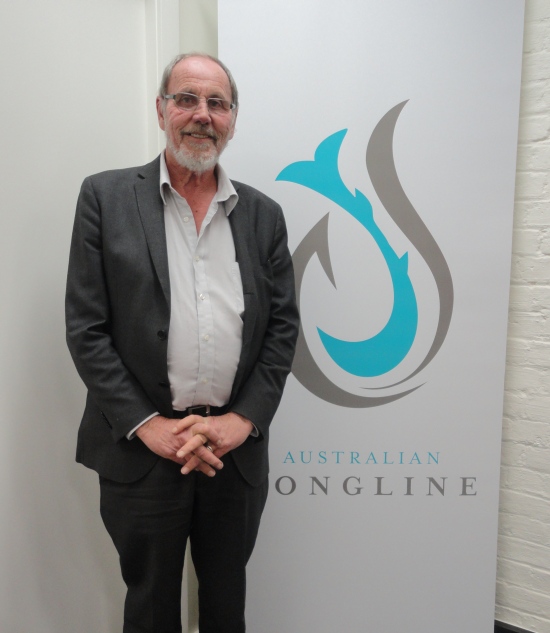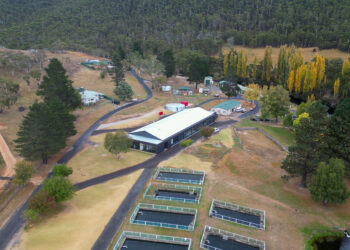SUSTAINABLE managed fisheries have been unfairly drawn into the ongoing super trawler debate, according to Petuna Sealord Deepwater Fishing and Australian Longline boss, Les Scott.
In a letter to Fishing World in response to online anti super trawler campaigns, Scott says protest groups have unfairly linked his company’s 104.5m Meridian-1 trawler to such campaigns.
Scott says Meridian-1, which has been conditionally approved by the Australian Fisheries Management Authority for use in the grenadier fishery off the West Coast, is being unfairly targeted by the Stop the Trawler Alliance.
It has been reported that in direct response to current anti super trawler sentiment, Petuna Sealord has kept the 4400-tonne ship in New Zealand, and plans to bring the ship to its Tasmanian fishery in 2015.
In the interest of Fishing World readers we reprint Les Scott’s letter in full:
The campaign against so-called super trawlers and the petition circulating to ban them has interesting parallels with fishing itself.
How often do our recreational fishing brethren catch something and throw it away without realising its value because they are after bigger fish to fry?
The danger of people backing the ongoing campaign by the Stop the Trawler Alliance and circulating the online petition is that fisheries of great value, that are sustainably managed, will be scooped up in this net, quite unfairly.
This will happen because, just like careless and uncaring fishers, the campaigners are ignoring a valuable resource as they chase their one big fish, the so-called super trawler.
I am managing director of Petuna Sealord Deepwater Fishing, based in Tasmania, and we have already felt that net unfairly closing on us. Thankfully, we managed to get our message out despite a blizzard of uninformed criticism and misleading information.
The lesson from that is if you are going for bigger fish to fry in the campaign, then you have to take account of all those other fish in the sea that are valuable.
Our company and our operations, and our sister companies, are in that boat. We are valuable, we are ethical, we invest in research and the best technology, and vigorously support international campaigns against fishing piracy and overfishing. Just one example: Australian Longline, of which I am also managing director, has been a driving force for world’s best practice in the Patagonian toothfish fishery in the Southern Ocean.
The deeply disappointing thing is that that there is no public declaration from the Alliance acknowledging the many good things we and others in the industry have achieved, including in concert with scientific organisations, governments and environmental groups.
You will hear nothing from the Alliance of our sense of responsibility, our long history of sustainable fishing, our dedication to research, not to mention the fact that we operate under strict Australian regulations that are independently monitored
You may well say that we have to speak for ourselves – and we have.
But as we reveal all about our operations as a matter of fairness and transparency, then the Alliance should do the same.
The Alliance well knows that there are factory vessels operating in Australian waters under the strictest of conditions that meet the benchmarks it outlines in its article in this magazine: they employ locals, they fish sustainably, they protect wildlife.
Our company felt the Alliance’s vast net dragged indiscriminately through Australian fishing when we sought to bring in a new vessel for the blue grenadier fishery off Tasmania’s West Coast. There was an immediate outcry because this was a factory ship that it was more than 100 metres long. The alliance didn’t use the term super trawler in relation to the vessel, Meridian-1, but nevertheless it linked it to that campaign. And for those not fully informed, a 104-metre factory vessel might fit their idea of a super-trawler.
The alliance knows full well that:
- The Meridian-1 was replacing another vessel, also a factory ship, of 92 metres.
- In 1997 our company used a 97-metre factory ship.
- Our company has been operating in the blue grenadier fishery for 17 years without complaint, chartering similar sized ships.
- It would operate under Australian laws and regulations.
- The fishery is subject to strict quotas.
- Since fishing began in the fishery in 1997, 94 per cent of that biomass remains.
- Fishing occurs for only two months in July and August.
- There would be an AFMA observer on board at all times.
- The Meridian-1 is Ukrainian-owned and has been used by Sealord in New Zealand waters for more than a decade. Sealord jointly owns Petuna Sealord Deepwater Fishing with Tasmanian-based Rockliff Family.
- The Meridian-1’s ultimate ownership is irrelevant as the procedures and practices on board are set by our company, quotas managed by AFMA, and scientific monitoring done by the CSIRO.

The 105m Meridian 1 – Image supplied.
The alliance also knows full well that, given all those conditions, a change of vessel does not mean a change in the fishery. That’s why there has been no complaint about our operations in the past.
The difference now is that raising questions about any large vessel fits the anti-super-trawler agenda. And that poses the really big question: is damage to companies like ours an unintended consequence or an intended consequence of this campaign?
Fishers of all persuasions will realise why we have a 104-metre vessel fishing 30 kilometres and more off Tasmania’s West Coast in the path of the Roaring Forties in winter. The weather dictates it, first of all for safety of the crew. It’s no place for a recreational craft.
They will also realise that unless you process blue grenadier on board and freeze it, there just won’t be a market for this soft fish by the time it reaches shore.
They will also realise, being boat owners themselves, that if you are going to fish for just two months of the year, it just might be better value to charter a boat rather than spend all that money on something that’s parked in the driveway.
And of course, they will know what a quota is. It’s how many fish you are allowed to catch, no matter how big your boat.
So it was always ludicrous for critics to suggest that because we had a new ship, bigger than our old one, for the blue grenadier fishery, that this was somehow a threat.
The Alliance actually has some of the same aims as our companies: employing locals, ensuring fishing is sustainable, protecting wildlife (our ships have measures to protect seals and seabirds and those practices have been acknowledged as world best practise by regulatory authorities).
But for the purposes of their campaign, they choose not to acknowledge it.
Our imperatives are simple: without sustainable fishing we don’t have a business, we don’t employ people, we don’t invest in research.
And that danger is very real if a valuable marine resource – companies like ours – is damaged by the indiscriminate trawling for support by the Alliance.
That’s the catch.
Les Scott is managing director of Tasmanian-based Petuna Sealord Deepwater Fishing and Australian Longline.

















